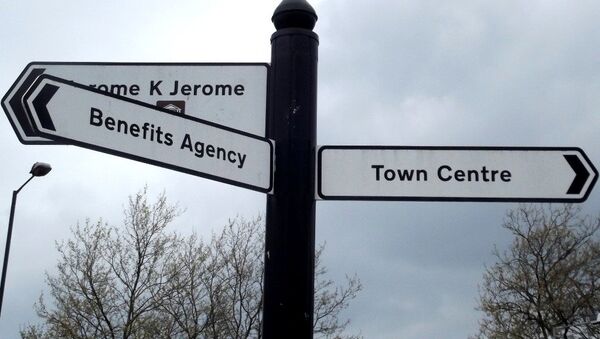David Cameron is traveling to Romania and Bulgaria to discuss his proposed welfare ban. Talks around the controversial topic are currently in deadlock. However, it has since emerged that Brussels is looking at potential options to meet Mr Cameron in the middle, offering a so-called "emergency brake" — temporarily restricting freedom of movement for economic migrants to avoid overwhelming public services in Britain.
— Henry Smith MP (@HenrySmithMP) December 1, 2015
The fear of benefit tourism in the UK is "ludicrous"
— TCD Law Soc (@TCDLawSoc) November 23, 2015
An EU diplomat told London newspaper, Financial Times, that exemptions to the EU treaty can be made in circumstances when public security, public policy or public health are at risk.
"This is definitely possible," said one EU diplomat. This means that member states, including Britain, would be able to temporarily impose measures to restrict inflows of migrants and granting residence permits, if the levels of immigration were putting a strain on schools and the NHS.
But Sir Stephen Nickell from the UK's Office for Budget Responsibility (OBR) believes that Mr Cameron's clampdown plans on so-called "benefit tourism" were "unlikely to have a huge impact" on the numbers of migrants settling in the UK.
Sir Stephen Nickell, OBR head says better pay and job opportunities are the significant immigration pull factors, not benefits
— Laura Kuenssberg (@bbclaurak) December 8, 2015
The biggest issues pushing the Brexit debate in Britain are immigration levels. Right wing think tank Migration Watch recently claimed that migrants living in Britain are claiming more than those born in the UK. Research by Oxford University's Migration Observatory suggested that the number of non-EU migrants who gained EU citizenship from another member state has tripled in the last decade.
Government has released methodology for @Number10gov's claim that about 40% of recent EU migrants are on benefits https://t.co/WVUrfE8hDn
— MigrationObservatory (@MigObs) November 10, 2015
While discussions on curbing freedom of movement remain in deadlock, an "emergency brake" — suggested by Brussels — could appease Cameron and the anti-immigration voters in the UK — without breaking up the founding principles of the European Union.
David Cameron has promised an In/Out referendum of Britain's membership of the EU by the end of 2017.


